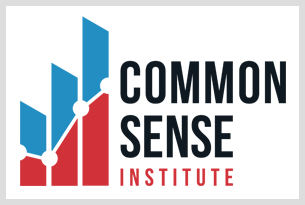Proposition HH is an exceedingly complex ballot measure. For voters to make an informed decision regarding HH, they must understand the measure’s far-reaching, and often disparate, impacts on different categories of Colorado taxpayers, and it is clear renters will bear a disproportionate cost of Proposition HH.
Impact on Renters:
- 768,000 Colorado households, or 33% of all Colorado households, rent their homes.
- Renters will not receive any direct property tax relief under Prop HH, yet they will face reductions in future TABOR refunds, thereby increasing their state taxes.
- For joint filers, the average reduction in TABOR refunds is projected to be $5,119 and $2,559 for[KS1] single filers, over a ten-year period.
- Even as property tax rates are reduced under Prop HH, total tax payments for rental property owners will still increase. Given the increase in property taxes is largely passed on, renters will face increases in rent, while also seeing reduction in future TABOR refunds.
- Although Proposition HH stipulates that up to $20 million annually of the funds retained by increasing the TABOR cap would go to providing rental relief, this spending would only provide relief to a small percentage of renting households. While there are over 750,000 renters in Colorado, just 2,666 to 4,000 would benefit from rental assistance if each received between $5,000 and $7,500 in benefits.
Background:
- Since 2020, two factors have combined to fuel a dramatic increase in Colorado’s residential property taxes. First, increased demand relative to supply and inflationary pressures have driven up home values. Second, the 2020 repeal of the Gallagher Amendment, which had limited the growth in residential property taxes, allowed residential tax rates to increase without a moderating mechanism.
- Recent survey results from county assessors indicate that home values across Colorado increased 40% on average over the last two years. Along the Front Range, rate increases ranged from 35% in Elbert County to 47% in Douglas County. Some mountain resort communities saw home values rise as much as 70%. The 2023 tax bill for the median priced home in multiple front range counties is expected to increase by more than $1,000, representing a significant cost to households.
- After employing one-off, stopgap measures to lessen the impact of property tax hikes over the last two years, the legislature, at the very end of the 2023 legislative session, passed a referred measure placing Proposition HH on the November 2023 ballot.
Proposition HH:
- Proposition HH impacts both property taxes and refunds that taxpayers may receive under Colorado’s Taxpayer Bill of Rights (TABOR). If passed, it will reduce the assessed value for certain residential and commercial property classes, thus blunting but not eliminating recent and future property tax increases. It will also increase taxes by allowing the state to retain more taxpayer revenue under the provisions of TABOR. Statewide, the potential aggregate property tax revenue reductions under Proposition HH amount to $9.92 billion through 2032, while the potential reduction in TABOR refunds total $9.9 billion. Should the legislature choose to extend Proposition HH through 2040, which it could do without taxpayer approval, there could be a net tax increase of $20.1 billion.
- For homeowners, it is projected that most would see a modest net tax increase through 2032 because of Proposition HH. The median priced home in Colorado could see a reduction in property taxes of $4,641 against current law, while seeing an increase in state taxes of $5,119 with two taxpayers in the household. Thus, the net impact would be a $478 tax increase by 2032.

